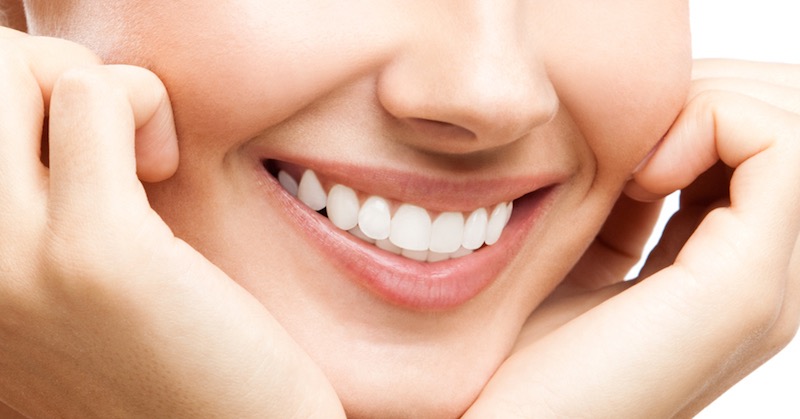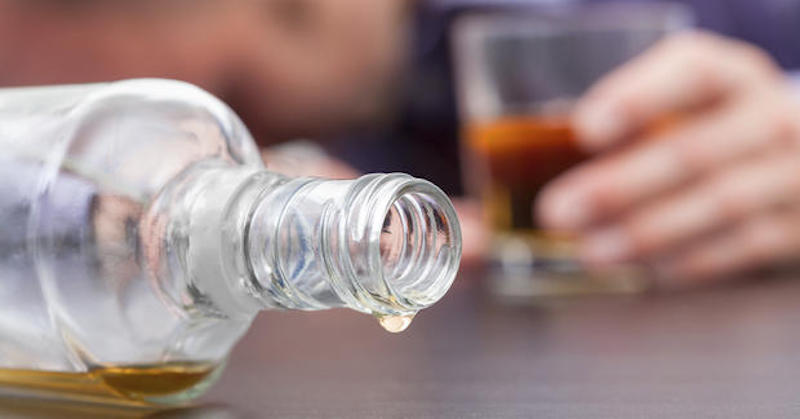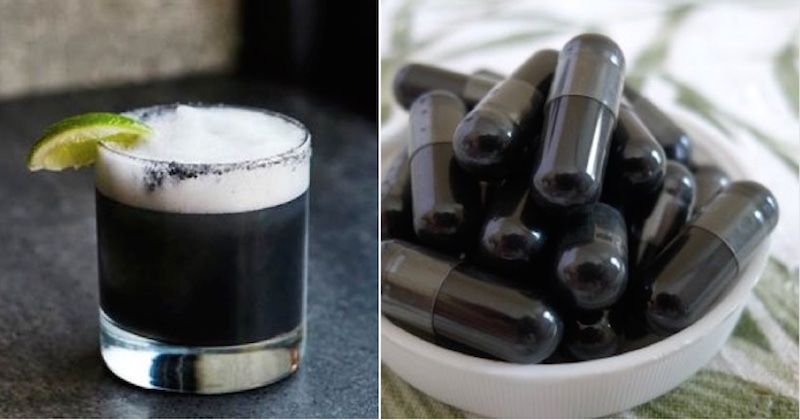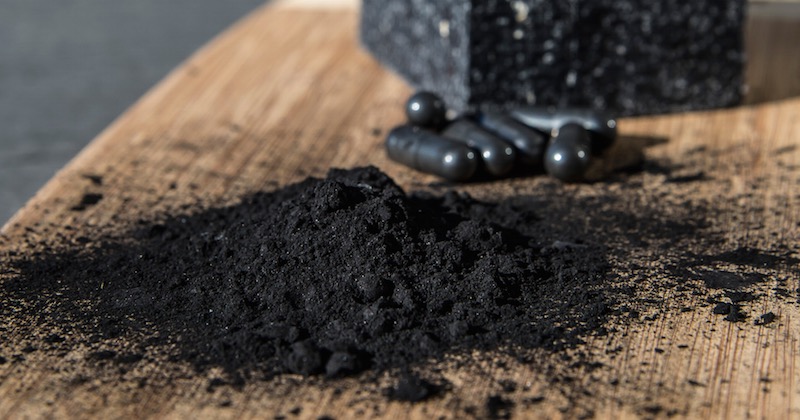Top 10 Surprising Uses Of (Food Grade) Activated Charcoal To Improve Your Life!
Last updated on
Activated charcoal is a potent natural treatment used to trap toxins and chemicals in the body, allowing them to be flushed out so the body doesn’t reabsorb them. It’s made from a variety of sources, but when used for natural healing, it’s important to select activated charcoal made from coconut shells or other natural sources.
One of the most popular activated charcoal uses is for the safe and effective treatment of poisoning and drug overdoses. It’s used in emergency trauma centers across the world. In addition, it’s used to reduce bloating and gas, lower cholesterol, treat bile flow problems safely during pregnancy, and even prevent hangovers.(1)
Research shows that activated charcoal works better than stomach pumping (gastric lavage) in some situations.(2)
What Is The Difference Between Charcoal And Activated Charcoal?
Charcoal is a porous black solid form of carbon, obtained as a residue when wood, bone or other organic matter is heated in the absence of air. You may think of charcoal as a residue leftover from a fire, and you’re not wrong.
Charcoal is commonly used around the house, for barbecue, in water treatment systems, in air purification, sewage treatment, in vacuum cleaners and in creating art.
Activated charcoal (or activated carbon) has oxygen added to it to increase its porosity, thus adding to its surface area. Due to its high degree of microporosity, activated carbon has a far larger surface area for binding with toxins.
How Does Activated Charcoal Work?
Activated charcoal works by trapping toxins and chemicals in its millions of tiny pores. Typically, however, it’s not used when petroleum, alcohol, lye, acids or other corrosive poisons are ingested.
It doesn’t absorb the toxins, however. Instead it works through the chemical process of adsorption. In the body, absorption is the reaction of elements, including nutrients, chemicals and toxins, soaked up and assimilated into the blood stream. Adsorption is the chemical reaction where elements bind to a surface.
The porous surface of activated charcoal has a negative electric charge that causes positive charged toxins and gas to bond with it. The nooks and crannies in activated charcoal are created through a heating process.
It’s important to note that activated charcoal is not charcoal used in your barbecue grill! Barbecue charcoal is loaded with toxins and chemicals, and must never be consumed.
Top 10 Activated Charcoal Uses
Whenever you take activated charcoal, it’s imperative to drink 12-16 glasses of water per day. Activated charcoal can cause dehydration if adequate amounts of water aren’t consumed in tandem. In addition, this helps to flush out the toxins quickly and prevents constipation experienced by some individuals.
In addition to being a safe and effective treatment for poisonings and the removal of toxins from the system, additional activated charcoal uses include deodorizing and disinfecting, and it’s an important step to cure Lyme disease. Here are the top 10 activated charcoal uses:
1. Activated Charcoal For Teeth Whitening
Have your teeth become stained from coffee, tea, wine or berries? Activated charcoal helps whiten teeth while promoting good oral health by changing the pH balance in the mouth, helping prevent cavities, bad breath and gum disease.
It works to whiten teeth by adsorbing plaque and microscopic tidbits that stain teeth. This activated charcoal use is cost-effective and an all-natural solution for a bright smile.

BE CAREFUL, it can (and will) stain grout and fabrics. Protect counters, floors and clothing before using.
To whiten your teeth naturally, wet a toothbrush and dip into powdered activated charcoal. Brush teeth as normal, paying special attention to areas showing the most staining. Sip a bit of water, swish through mouth thoroughly and spit. Rinse well, until spit is clear.
For best results, brush your teeth with activated charcoal two-three times per week.
Note: If you have crowns, caps or porcelain veneers, it’s possible that activated charcoal will stain them. In addition, if your teeth become sensitive, quit using it.
2. Activated Charcoal For Alleviating Gas and Bloating
One activated charcoal use often overlooked is to alleviate uncomfortable gas and bloating. It works by binding the gas-causing byproducts in foods that cause discomfort.
A study in the American Journal of Gastroenterology found that activated charcoal prevents intestinal gas following a typical gas-producing meal.(4)
Dosing recommendations to alleviate gas and bloating: Take 500 milligrams one hour prior to a typical gas-producing meal, with a full glass of water. Follow with an additional glass of water immediately thereafter to help get the charcoal into your system, where it can bind with gas-producing elements.
3. Activated Charcoal Detox — Treats Alcohol Poisoning And Prevents Hangovers
While activated charcoal does not adsorb alcohol, it does help quickly remove other toxins from the body that contribute to poisoning.

Alcohol is rarely consumed in its pure form; mixers that include artificial sweeteners and chemicals are common. Activated charcoal removes these toxins.
In addition, when activated charcoal is taken at the same time as alcohol, some studies show it can significantly reduce blood alcohol concentrations.(5)
Princeton University’s First Aider’s Guide to Alcohol indicates that activated charcoal is administered in some situations related to alcohol.(6) This includes if the individual is unconscious or showing signs of acute alcohol poisoning.
4. Activated Charcoal For Mold Cleansing
Most people don’t think about mold living in their bodies, but it can. Toxic mold causes depression, kidney and liver failure, decreased brain function, heart disease, eye irritation, headaches, vomiting, impaired immune system function, and severe respiratory distress.
Homes that have flooded, or even those with small leaks under a sub-floor or in the walls, can create an environment where mold can thrive. Poor ventilation contributes to the problem, and bathrooms, basements and laundry rooms are particularly prone to mold growth.
If there is visible mold in your home, it must be mitigated properly. It’s important to wear gloves and a protective mask to keep from inhaling toxic mold during cleanup. Baking soda, apple cider vinegar, tea tree oil and borax can be used to clean mold off hard surfaces and keep mold from growing in the future.
If you or your family experience symptoms including wheezing, rashes, watery eyes, coughing or headaches that aren’t explained in other ways, your home should be evaluated for mold spore levels, even if no visible mold is detected. It can thrive behind drywall, under floors and in ventilation ducts.
5. Activated Charcoal For Water Filtration
Activated charcoal traps impurities in water including solvents, pesticides, industrial waste and other chemicals. This is why it’s used in water filtration systems throughout the world. However, it doesn’t trap viruses, bacteria and hard-water minerals.
According to a study published in the Journal of the Canadian Dental Association, activated carbon filters (activated charcoal), removes some fluoride. (7). Avoiding fluoride and detoxing from it is important for oral health, proper immune system functioning, and healthy kidneys and liver.
Drinking water is essential to good health; however, typical tap water is toxic and laden with chemicals, toxins and fluoride. Ingestion should be limited whenever possible. Activated charcoal water filters are available for whole-home systems, as well as countertop models. Drink eight-10 glasses of pure water per day to help soothe the digestive tract, fight fatigue, keep organs operating, and provide lubrication for joints and tissues.
6. Activated Charcoal For Emergency Toxin Removal
As mentioned above, one of the most common activated charcoal uses is to remove toxin and chemicals in the event of ingestion. Most organic compounds, pesticides, mercury, fertilizer and bleach bind to activated charcoal’s surface, allowing for quicker elimination, while preventing the absorption in the body.
Activated charcoal is also used in the event of an accidental, or purposeful, overdose of many pharmaceutical drugs and over-the-counter medications. It’s effective for aspirin, opium, cocaine, morphine and acetaminophen. It’s important that the proper amount is administered as quickly as possible — definitely within an hour of ingestion.
In the event of poisoning, call 911 immediately. Proper dosing is imperative. According to the University of Michigan Health System, 50 to 100 grams (not milligrams!) is used in cases of poisoning in adults and 10 to 25 grams for children.(8)
In addition, activated charcoal can be used in cases of food poisoning when nausea and diarrhea are present. Adults take 25 grams at onset of symptoms or when food poisoning is suspected, and children should be given 10 grams. Increase dosage as necessary. Remember, it’s essential that adequate water is consumed when activated charcoal is taken.
7. Activated Charcoal For Skin And Body Health
Activated charcoal uses extend beyond internal applications. For external treatments, it’s effective at treating body odor and acne and relieving discomfort from insect bites, rashes from poison ivy or poison oak, and snake bites.
After a mosquito bite or bee sting, mix one capsule of activated charcoal with ½ tablespoon of coconut oil, and dab on affected area. Reapply every 30 minutes until itching and discomfort are gone. As activated charcoal stains nearly everything it touches, wrap with a bandage.
To treat bites from snakes and spiders, including the Brown Recluse or Black Widow, you want to cover a larger area than just a small bandage, as the bacteria and viruses that lead to tissue damage need to be mitigated quickly.
Create a wrap out of fabric that’s big enough to go around the affected area twice. Dab the mixture of coconut oil and activated charcoal on the fabric, and wrap. Secure with bandages. Reapply every two to three hours, rinsing well between applications.
To treat acne, mix one capsule of activated charcoal with two teaspoons of aloe vera gel, and smooth over face. Let dry and rinse off completely. The activated charcoal binds with environmental toxins and dirt that contribute to acne. It’s also good for spot treatments.
8. Activated Charcoal For Digestive Cleanse
Activated charcoal uses help promote a healthy digestive tract by removing toxins that cause allergic reactions, oxidative damage and poor immune system function.
By removing the toxins from your system, you can reduce joint pain, increase energy and increase mental function.

Environmental factors, including pesticides on food, chemicals in the water we drink and exposure to mold, create a toxic burden in our bodies. It’s important to routinely cleanse the digestive tract to support overall health and wellness. To complete a digestive cleanse with activated charcoal, take 10 grams 90 minutes prior to each meal, for two days.
During the cleanse, eat only organic fruits and vegetables, grass-fed meat, and wild fish. If during the cleanse you find you are constipated, this is a sure sign you’re not consuming enough water! Drink a glass of warm water with a slice of lemon and a touch of honey every half hour until constipation is relieved.
9. Activated Charcoal For Anti-Aging
Activated charcoal uses include helping prevent cellular damage to kidneys and liver, as well as supporting healthy adrenal glands. It’s imperative to cleanse toxins and chemicals routinely from the body. Activated charcoal benefits major organs by helping the body flush out the toxins and chemicals that cause the damage.
Aging is a natural part of life, but due to the toxic load we are exposed to through food, our homes and workplaces, and our environment, to prevent pre-mature aging we must get rid of them.
For this activated charcoal use, take two capsules per day after exposure to nonorganic foods, heavy metals or after contact to other toxins. This supports better cognitive function, a reduction in brain fog, healthier kidney and liver function, and a healthier digestive tract.
10. Activated Charcoal Reduces High Cholesterol
Studies around the world show that activated charcoal reduces bad cholesterol and increases good cholesterol as much as some prescription medications. In one study, total cholesterol decreased by 25 percent, LDL cholesterol decreased by 41 percent, while HDL increased by 8 percent — in just four weeks.(9)
Study participants took three doses of eight grams each for the period of the study. As mentioned below, don’t take activated charcoal within 90 minutes to two hours of taking any prescription medication or supplements as it can prevent proper absorption.
Activated Charcoal For First Aid
I recommend activated charcoal as a part of first aid kits, both at home and at work.(3)
In the event of an emergency where toxins, drugs or chemicals are ingested, it’s imperative to call 911 immediately.
If you have activated charcoal on hand, be sure to tell the operator; the operator may advise to administer it prior to the first responder’s arrival.
Depending on the amount of toxins or chemicals ingested and types of toxins, multiple doses may be required. At the hospital, physicians are able to administer more as needed.
Activated Charcoal Side Effects
For the activated charcoal uses mentioned here, it’s generally deemed safe for most individuals. However, it’s always good to be aware of any medical conditions such as intestinal bleeding or blockages, holes in the intestines, chronic dehydration, slow digestion, or a recent abdominal surgery, as they may affect how activated charcoal reacts in your body.(10)
Additionally, activated charcoal can interfere with the absorption of nutrients, supplements and interfere with prescription medications. Take activated charcoal 90 minutes to two hours prior to meals, supplements and prescription medications. Potential adverse interactions with the following drugs can occur:(11)
- Naltrexone (used for alcohol and opioid dependence)
- Acrivastine
- Bupropion
- Carbinoxamine
- Fentanyl
- Hydrocodone
- Meclizine
- Methadone
- Morphine
- Morphine Sulfate Liposome
- Mycophenolate Mofetil
- Mycophenolic Acid
- Oxycodone
- Oxymorphone
- Suvorexant
- Tapentadol
- Umeclidinium
- Acetaminophin
- Tricyclic antidepressants
- Theophylline
Users may also experience:
- Black stools – taking activated charcoal may cause darkening of your stool. Do not panic.
- Black tongue – when used on the teeth, it may temporarily blacken tongue. This is harmless.
- Constipation – as activated charcoal is absorbing, it may cause temporary constipation. Drink more water when taking this product.
BUY FOOD GRADE ACTIVATED CHARCOAL:
Buying Activated Charcoal
When selecting activated charcoal for any of the uses above, it’s vital that you know what it’s made from. Not all activated charcoal supplements are created equally.
Look for activated charcoal made from coconut shells or identified wood species that have ultra-fine grains.
Here are a few suggestions on activated charcoal personal care products that we like:
-
Activated charcoal capsules
If you’re taking activated charcoal for internal cleansing: tablet or capsule forms are recommended, although I prefer it in capsule form. With capsules, you may open them up and use the powder for other purposes, such as for teeth-whitening, or for the occasional skin breakouts or insect bites.
Nature’s Way Activated Charcoal and Premium Coconut Activated Charcoal are two brands that I trust for use as a natural adsorbent agent.
-
Activated charcoal powder form
Activated charcoal in powder form is versatile for use. You can use it to make your own toothpaste, facial mask, for your hair and skin, even to be added in smoothies for a quick cleansing every now and then. It is ideal for use also on your pet animals. Get this food grade Hardwood Activated Charcoal Powder.
-
Activated charcoal mask
If you prefer to get prepared activated charcoal mask, instead of mixing your own, then you should try this Activated Charcoal Mud Mask that is combined in Dead Sea mud. It is helpful for shrinking facial pores, clearing up acne, exfoliating, removing dead skin cells, micro particles, blackheads and dirt off the skin.
-
Activated charcoal soap
Some users have reported that activated charcoal bar soap has helped them relieve their skin breakouts in cases of psoriasis, eczema and acne. Use as a face soap, body wash or hand soap.
I like the ingredients that go into this particular activated Charcoal Soap Bar. It is handmade soap bar and suitable for sensitive skin. The soap bar contains: activated charcoal, Dead Sea mineral mud, olive oil, coconut oil, sustainable palm oil, goat’s milk, peppermint, rosemary and eucalyptus essential oils.
-
Activated charcoal toothpaste
If you have purchased activated charcoal in capsule or powder form, use it to make your own teeth-whitening agent, or tooth powder. Or just add powder from one capsule onto your favorite toothpaste and use.
How To Use Activated Charcoal Internally
- Activated charcoal is great for removing toxins when needed, it is not meant for long-term use.
- Take activated charcoal at least two hours away from your medicines or supplements.
- Use activated charcoal as soon as you realize the ingestion of toxins.
- Drink lots of water when taking activated charcoal supplement, to prevent constipation.
- Follow the directions on the packaging on dosage and maximum amount to take in a day.
Some of the links I post on this site are affiliate links. If you go through them to make a purchase, I will earn a small commission (at no additional cost to you). However, note that I’m recommending these products because of their quality and that I have good experience using them, not because of the commission to be made.
Comments
Leave a Reply


































 JOIN OVER
JOIN OVER
What is considered when it’s not meant “long-term use”? I put a teaspoon in my smoothie but if only a short-term solution, how long should you take/use activated charcoal for? Thanks!
Can this charcoal treatment help me with getting off of Excedrin which cause rebound headaches?